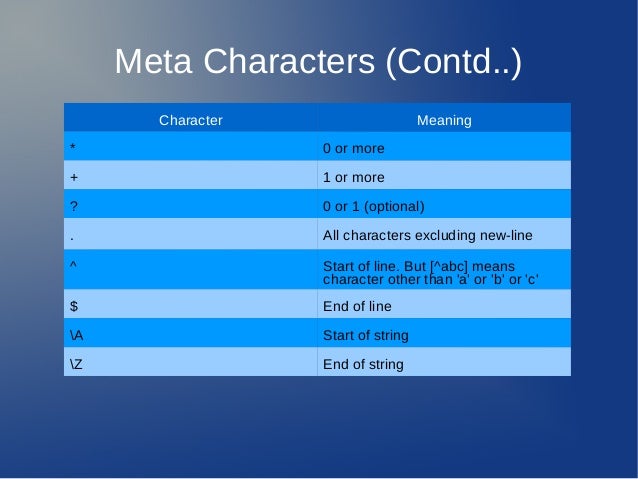

When we want to extract the matched value we can use match() method. let myString = "freeCodeCamp" // We ignore case by using 'i' flaglet fccRegex = /freecodecamp/i // result is truelet result = fccRegex.test(myString) 6. To ignore case we can do it by adding the i flag at the end of a pattern, like so /some-pattern/i. How can we make our RegEx patterns to be case insensitive? So far, we have looked at patterns when the case of the letters mattered. let petString = "James has a pet cat." // We can now try to find if either of the words are in the sentencelet petRegex = /dog|cat|bird|fish/ let result = petRegex.test(petString) 5. RegEx also has OR operator which is | character. Match a Literal String with Different Possibilities Note that in this example waldoRegex is case sensitive, so if we were to write /waldo/ with a lowercase ‘w’, then our result would be false. let waldoIsHiding = "Somewhere Waldo is hiding in this text." let waldoRegex = /Waldo/ // test() returns true, so result is now also truelet result = waldoRegex.test(waldoIsHiding) String we want to testlet myString = "Hello, World!" // Pattern we want to findlet myRegex = /Hello/ // result is now truelet result = myRegex.test(myString) 3. We can use RegEx test() method to tell if a pattern is present in a string or not. Notice how we use /the/ to indicate that we are looking for “the” in our sentence. Let’s look at an example: // We want to check the following sentencelet sentence = "The dog chased the cat." // and this is the pattern we want to match.let regex = /the/ We can indicate that something is a RegEx pattern by putting the pattern between slashes /, like so /pattern-we-want-to-match/. To match parts of strings using RegEx, we need to create patterns that help you to do that matching.

So let’s get started! You’ll be saving the day in no time. I also have a basic JavaScript course that you can access on Scrimba and on the YouTube channel. If you don’t already know basic JavaScript, it could be helpful if you cover it a bit first. These lessons focus on using RegEx in JavaScript, but the principles apply in many other programming languages you might choose to use. You can check that out for coding challenges and to earn a certificate.

This course follows along with the RegEx curriculum at. The sections in this article correspond to the sections in the Scimba course. But if you would prefer to watch the video version with interactive lessons, you can check it out on Scrimba. This article contains the course in written form.
REGEX ONLINE FULL
I’ve developed a free, full video course on to teach the basics of regular expressions. Regular Expressions, or just RegEx, are used in almost all programming languages to define a search pattern that can be used to search for things in a string. This article is a full course on Regular Expressions. But it doesn’t have to be a problem for you.
REGEX ONLINE FREE
By Beau Carnes Learn Regular Expressions with this free course “Some people, when confronted with a problem, think ‘I know, I’ll use regular expressions.’ Now they have two problems.” -Jamie Zawinskiįor some people, using regular expressions can be a problem.


 0 kommentar(er)
0 kommentar(er)
